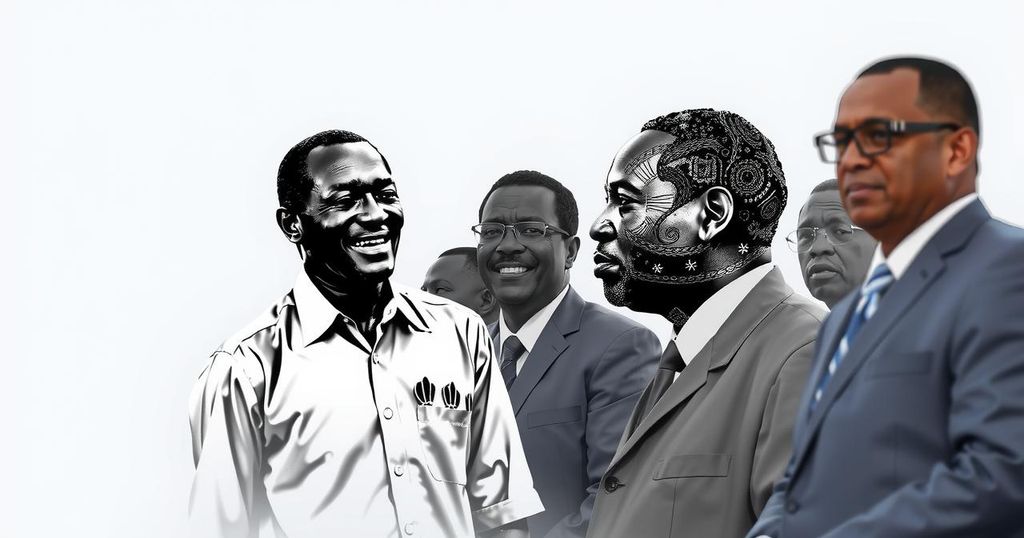Botswana’s ruling party, the Botswana Democratic Party, has lost its parliamentary majority in a surprising election outcome after nearly sixty years in power. Preliminary results show that opposition parties have secured 31 out of 61 seats, marking a significant political shift in the diamond-rich nation. Economic challenges, particularly a global decline in diamond demand, have contributed to this electoral change.
Botswana’s ruling party, the Botswana Democratic Party (BDP), has experienced a significant electoral setback, marking the end of its nearly sixty-year tenure in power. Preliminary results indicate that opposition parties have successfully secured a majority in the parliament. The BDP, led by President Mokgweetsi Masisi, managed to win only one of the 61 parliamentary seats as of early Friday morning. In contrast, the Umbrella for Democratic Change, led by Duma Boko, obtained 19 seats, while the Botswana Congress Party, under the leadership of Dumelang Saleshando, claimed seven seats. The Botswana Patriotic Front, associated with former President Ian Khama, succeeded in winning five seats. Under Botswana’s constitutional framework, the party that holds a majority in parliament is entitled to select the president and form the government. This electoral defeat comes as a shock, particularly given the expectations surrounding President Masisi, a former educator and UNICEF worker, who was anticipated to maintain a parliamentary majority and commence a second and final term in office. Botswana is often celebrated as a model of democracy and economic stability in Africa; however, recent trends reveal a decline in demand for mined diamonds, which constitute approximately 80 percent of the Southern African nation’s exports. This downturn has adversely affected the economy, with the International Monetary Fund predicting a slowdown in economic growth to a mere 1 percent in 2024, a drop from 2.3 percent the previous year and 5.5 percent in 2022, exacerbated by an increase in unemployment that has now reached 27 percent.
Botswana, recognized for its diamond wealth and stable democratic governance, has been ruled by the Botswana Democratic Party since its independence in 1966. Under its governance, the nation has often been lauded as one of Africa’s major success stories, characterized by relatively robust economic growth and political stability. However, recent global economic fluctuations, particularly in the diamond market, have created challenges, including decreasing demand that threatens to destabilize the economy and reduce growth projections. Such economic challenges played a significant role in the recent electoral results, demonstrating the complex interrelation between economic conditions and political landscapes.
In summary, the early election results indicate that Botswana’s ruling party, the Botswana Democratic Party, has lost its long-standing majority after decades in power, facing significant competition from opposition parties. This electoral shift signifies not only a change in political leadership but also highlights the underlying economic pressures stemming from a downturn in the diamond industry, which could have further ramifications for the country’s governance and economic future.
Original Source: www.aljazeera.com






